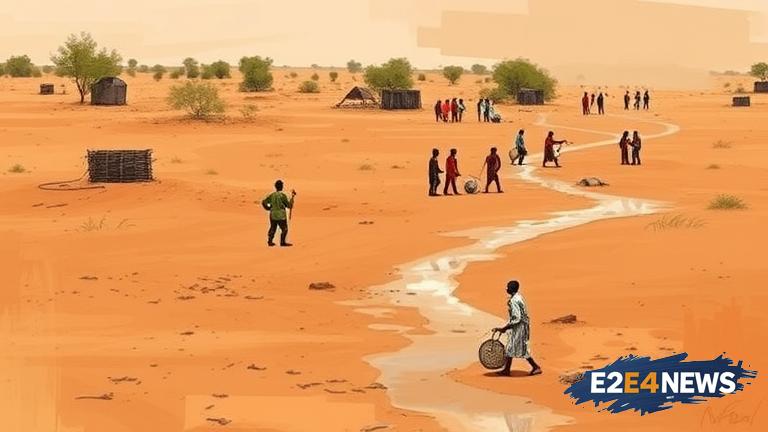A recent cholera outbreak in eastern Chad has claimed the lives of 63 people, according to reports from the region. The outbreak, which was first reported in late August, has affected several villages in the eastern part of the country. The cholera epidemic has sparked concerns over the country’s healthcare system and sanitation infrastructure, with many calling for improved access to clean water and medical care. Cholera is a highly infectious disease that can spread quickly in areas with poor sanitation and hygiene. The disease is typically spread through contaminated food or water, and can be fatal if left untreated. The outbreak in eastern Chad is believed to have been caused by a combination of factors, including heavy rainfall and poor waste management. The region’s healthcare system has been overwhelmed by the outbreak, with many hospitals and clinics struggling to cope with the influx of patients. The Chadian government has responded to the outbreak by deploying medical teams to the affected areas and distributing aid to those in need. However, many are calling for more to be done to address the root causes of the outbreak and prevent future epidemics. The international community has also been urged to provide support to Chad, which is one of the poorest countries in the world. The outbreak has highlighted the need for improved access to clean water and sanitation in the region, as well as better healthcare infrastructure. The Chadian government has pledged to increase investment in the healthcare sector, but many are skeptical about the government’s ability to deliver on its promises. The outbreak has also had a significant impact on the local economy, with many businesses and markets forced to close due to the risk of infection. The Chadian people are calling for urgent action to be taken to address the outbreak and prevent future epidemics. The international community must also play its part in supporting Chad and helping the country to develop its healthcare system. The outbreak is a reminder of the importance of investing in healthcare and sanitation infrastructure, particularly in areas with high poverty rates and limited access to clean water. The Chadian government and the international community must work together to address the root causes of the outbreak and prevent future epidemics. The people of Chad deserve access to clean water, sanitation, and healthcare, and it is the responsibility of the government and the international community to ensure that these basic human rights are met. The outbreak has sparked widespread concern and outrage, with many calling for accountability and action from the government. The Chadian people are demanding that their government takes urgent action to address the outbreak and prevent future epidemics. The international community must also provide support and assistance to Chad, including aid, expertise, and resources. The outbreak is a wake-up call for the Chadian government and the international community to take action and address the root causes of the epidemic. It is only through collective action and a commitment to investing in healthcare and sanitation infrastructure that we can prevent future outbreaks and ensure that the people of Chad have access to the basic human rights they deserve.
